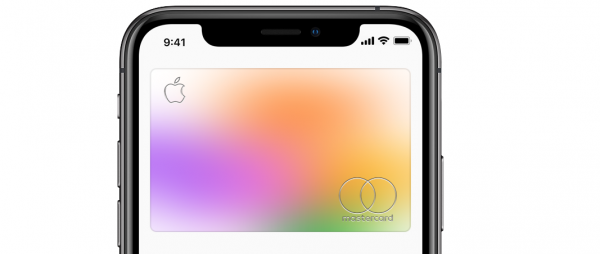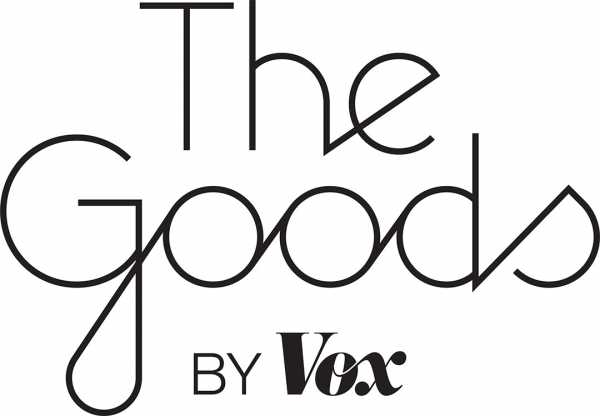
This story is part of a group of stories called

The credit card Apple announced in March from its Cupertino, California, campus is rolling out Tuesday to a randomly selected group of iPhone users (who had signed up to be notified when the card became available). By the end of the month, any US iPhone user will be able to access the app and apply for the card.
The March press event was all about the company’s ever-expanding suite of services — which currently bring in about $10 billion per quarter and have only become more important to the company as it’s reached what looks like a plateau in iPhone sales. In addition to the new Apple credit card, CEO Tim Cook announced a subscription gaming service called Apple Arcade, a new streaming service called Apple TV Channels, and a subscription news service called Apple News+ (in which Vox is participating).
First, an audience of press and developers watched an animated faux-movie title sequence featuring several of Apple’s most famous ads and referring to its employees and fans as “misfits, rebels, and troublemakers.” Half an hour later, Cook announced that his company was launching a credit card with Goldman Sachs.
“While we all need them, there’s some things about the credit card experience that could be so much better,” Cook said, after standing briefly in front of a title card that boasted a projected 10 billion transactions this year through its instant-payment app Apple Pay. The crimes of credit cards are fairly obvious, and Cook is not wrong about them — the rewards are confusing and hard to redeem, the rules around fees and interest rates can be deceptive, the apps and websites affiliated with major credit card companies are bafflingly hideous and difficult to use.
The Apple credit card will supposedly change all this. You sign up directly on your iPhone and get a usable digital version immediately. You can use it directly from the Wallet app of your phone, powered by Apple Pay. The application process is meant to be lightning-fast: Just type in your address, birthday, income, and the last four digits of your Social Security number, and Apple promises that Goldman Sachs will approve or deny you within a minute.
There is a physical Apple Card as well, which was introduced in March with a music video about spray-painting a titanium credit card and etching an Apple logo into it with a laser. It has no number and requires no signature; payments can only be validated through your iPhone (using Touch ID and Face ID), which makes it more like a totem of a credit card than an actual credit card. Oddly, using the physical card results in a penalty of sorts, as the cash-back rate diminishes to 1 percent for those purchases. Presumably this will incentivize making payments through your iPhone (and more people making payments through their iPhones means more businesses accepting Apple Pay).
The Verge’s Nilay Patel writes Tuesday morning:
The Wallet app also does a lot of simple financial tracking for you — displaying a breakdown of your spending in soothing pink and teal gradients — and tying each purchase to its location in Apple Maps. It can supposedly make “financial health” recommendations for you and calculate various monthly payment options, while showing you how much interest each will result in over time. You can also text for help in iMessage (“You don’t have to wait on hold or remember your mother’s maiden name”).
Most importantly, Apple boasts the card’s rewards program, which is called Daily Cash. “It’s cash, like real cash,” vice president of Apple Pay Jennifer Bailey explained. Apple Card holders get 2 percent back on all purchases made with a digital card, and 3 percent back when they’re spending money in an Apple Store or on an Apple service. Apple hasn’t said exactly how many people will be approved for the card — historically, cards with perks this good have required extremely high credit scores — but has said it would like it to be “accessible,” and that it doesn’t intend to compete with any well-known high-end cards like American Express Platinum or Chase Sapphire.

Apple has been emphasizing privacy in all its recent advertising for the iPhone and did so again in justifying the existence of its credit card. “Apple doesn’t know what you bought, where you bought it, or how much you paid for it,” according to Bailey, and all the tracking and sorting of purchases happens on your phone itself, without being sent to Apple servers. Goldman Sachs won’t be able to sell or share your data either, she announced in March.
While a huge chunk of Apple’s service revenue comes from in-app purchases in free-to-play games, which are notorious privacy nightmares, this credit card seems fine. (Albeit cosigned by one of the largest banks in the world, with a storied history of alleged gender discrimination, undue political influence, and shorting the American economy.)
In fact, it’s not much of a surprise. Apple has been in the payments game for a while already, and it has been a long time since this was a company of “troublemakers” working out of a garage. Apple Pay has been around — and increasingly commonplace — since 2014.
As Medium editor Micah Singleton pointed out on Twitter, Apple also partnered with Barclays to offer exclusive rewards on a widely criticized Visa card in 2014, but this did not come up during the initial presentation. Apple Card is its first full-blown financial service — assisted by MasterCard and “a bank that was willing to do things that had never been done in the industry before.” Goldman Sachs, that is.
Want more stories from The Goods by Vox? Sign up for our newsletter here.
Update: Updated August 6, 11 am ET, to include details of Apple Card rollout.
Sourse: vox.com






